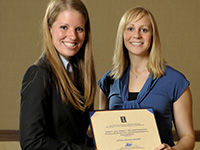The Ultimate Guide to Environmental Engineering in Atlanta – Willmer Engineering
Atlanta, the capital of Georgia, is a vibrant city known for its rich history, diverse culture, and thriving economy. However, like many urban areas, Atlanta faces numerous environmental challenges that require the expertise of environmental engineers. An environmental engineering program is crucial in addressing these challenges by providing comprehensive educational and research opportunities in air, land, and water science and engineering. In this ultimate guide, we will delve into the world of environmental engineering in Atlanta, exploring the role of environmental engineers, key principles of the field, the landscape of environmental engineering in Atlanta, major projects, career opportunities, and future trends.
Understanding Environmental Engineering
Civil and environmental engineering is a multidisciplinary field that combines scientific principles, engineering knowledge, and technological innovations to address environmental challenges. It focuses on preserving and improving the quality of air, water, and land, while promoting sustainable development.
The Role of Environmental Engineers
Environmental engineers play a vital role in Atlanta’s efforts to maintain a clean and healthy environment. Civil engineers are also deeply involved in these projects, bringing their expertise in areas such as biofiltration, global water, sanitation and hygiene, and oxidation of organics. They design and implement solutions to manage pollution, protect natural resources, and ensure compliance with environmental regulations. They conduct environmental impact assessments, develop wastewater treatment systems, and design strategies for waste management and recycling.
Key Principles of Environmental Engineering
Environmental engineering in Atlanta is guided by several key principles. First and foremost is the prevention of pollution, aiming to minimize environmental impacts at their source. Engineers employ innovative technologies and sustainable practices to reduce emissions, promote energy efficiency, and conserve resources.
However, environmental engineering is not just about preventing pollution. It also involves the protection and restoration of natural ecosystems. Environmental engineers work tirelessly to preserve biodiversity, restore habitats, and promote sustainable land use practices. By implementing green infrastructure projects, such as the creation of wetlands and green roofs, they enhance the resilience of urban areas and create spaces for wildlife to thrive.
Furthermore, environmental engineers are committed to ensuring public health. They play a crucial role in ensuring the provision of safe drinking water by improving water quality, improving air quality, and managing hazardous waste. Through rigorous research and analysis, they develop policies and guidelines that safeguard the well-being of Atlanta residents. They also collaborate with various stakeholders, including government agencies, community organizations, and industry leaders, to create a healthier and more sustainable environment for everyone.
In conclusion, environmental engineering is a dynamic and essential field that addresses the complex challenges of our time. By combining scientific knowledge, engineering expertise, and innovative technologies, environmental engineers make significant contributions to the well-being of Atlanta and its residents. Their work not only protects and preserves the environment but also promotes sustainable development and a better quality of life for all.
Atlanta has a long history of environmental engineering initiatives aimed at addressing the unique challenges of the city. From the past to the present, environmental engineers have played a crucial role in shaping Atlanta’s environmental landscape.
The History of Environmental Engineering in Atlanta
Environmental engineering in Atlanta traces its roots back to the mid-20th century when the city experienced rapid population growth and industrial development. During this time, environmental engineers were instrumental in designing and implementing wastewater treatment systems to protect the Chattahoochee River, a vital water source for Atlanta and surrounding areas.
Academic institutions and their faculty members have played a crucial role in the history of environmental engineering in Atlanta, contributing through extensive research opportunities and involvement in campus-wide initiatives.
These early environmental engineering projects not only focused on wastewater treatment but also included the development of stormwater management systems to mitigate flooding and prevent water pollution. Atlanta’s environmental engineers worked tirelessly to ensure that the city’s growth did not come at the expense of its natural resources.
Throughout the years, Atlanta has continued to invest in environmental infrastructure, expanding its wastewater treatment capacity, improving air quality monitoring systems, and enhancing solid waste management practices. These efforts have significantly improved the overall environmental well-being of the city.
Current State of Environmental Engineering in Atlanta
Today, Atlanta boasts a robust environmental engineering sector comprising public and private entities dedicated to environmental stewardship. The city is committed to sustainable development and offers ample opportunities for environmental engineers to make a positive impact.
Atlanta has implemented innovative projects to reduce greenhouse gas emissions, expand renewable energy sources, and promote eco-friendly transportation. For example, the city has invested in the development of solar energy farms and the installation of electric vehicle charging stations throughout the metropolitan area.
Students are actively involved in current environmental engineering projects and research in Atlanta, contributing to the city’s innovative solutions and sustainable initiatives.
In addition to these initiatives, Atlanta is at the forefront of research and development in environmental engineering. The city collaborates with research institutions and organizations to develop cutting-edge solutions and address emerging environmental challenges. From exploring advanced water treatment technologies to studying the impact of climate change on urban ecosystems, Atlanta’s environmental engineers are constantly pushing the boundaries of innovation.
Furthermore, Atlanta’s commitment to environmental sustainability extends beyond its borders. The city actively participates in regional and national environmental engineering conferences and forums, sharing its knowledge and experiences with other communities facing similar challenges.
In conclusion, Atlanta’s landscape of environmental engineering is a testament to the city’s dedication to preserving its natural resources and promoting sustainable development. From its rich history of wastewater treatment systems to its current focus on renewable energy and research, Atlanta continues to be a leader in environmental engineering, shaping a greener future for generations to come.
Major Environmental Engineering Projects in Atlanta
Infrastructure Development Projects
Atlanta’s rapid growth necessitates continuous infrastructure development, with civil engineering playing a crucial role in these projects. Environmental engineers are at the forefront of designing sustainable transportation systems, stormwater management strategies, and green building practices. These projects aim to reduce congestion, mitigate flooding risks, and minimize the environmental footprint of Atlanta’s expanding urban areas.
One notable infrastructure development project in Atlanta is the BeltLine, a comprehensive transportation and economic development effort that aims to connect 45 neighborhoods through a 22-mile loop of multi-use trails, parks, and transit. Environmental engineers play a crucial role in ensuring that the BeltLine promotes sustainable transportation options, preserves green spaces, and mitigates the project’s impact on local ecosystems.
Waste Management and Recycling Initiatives
Effective waste management and recycling initiatives are crucial for Atlanta’s sustainable future. Environmental engineers work on projects to optimize waste collection systems, promote recycling awareness, and establish recycling facilities. These efforts enhance resource recovery, reduce landfill waste, and contribute to the circular economy.
Another innovative waste management project in Atlanta is the Food Well Alliance’s urban agriculture initiative, which aims to transform vacant lots and underutilized spaces into productive urban farms. Environmental engineers collaborate with local communities to design sustainable farming practices, implement rainwater harvesting systems, and promote composting to reduce food waste. These urban farms not only provide fresh produce to local residents but also serve as educational hubs for sustainable agriculture practices.
Career Opportunities in Environmental Engineering in Atlanta
Job Market Overview
As environmental consciousness continues to grow, so does the demand for skilled environmental engineers in Atlanta. Public agencies, consulting firms, research institutions, and industrial companies offer a wide range of career opportunities in this field. These positions involve designing and implementing sustainable solutions, conducting environmental assessments, and ensuring regulatory compliance.
Atlanta, the capital city of Georgia, has been making significant strides in promoting environmental sustainability. With a focus on green initiatives and eco-friendly practices, the city provides a fertile ground for environmental engineers to make a tangible impact. From addressing water pollution to managing waste disposal, environmental engineers play a crucial role in shaping Atlanta’s future as a sustainable and resilient urban center.
Required Skills and Qualifications
Successful environmental engineers in Atlanta possess a diverse range of skills and qualifications. Strong problem-solving abilities, analytical thinking, and a solid scientific foundation are essential. Environmental engineers must also have a deep understanding of environmental regulations, sustainability practices, and the ability to work collaboratively with diverse stakeholders.
Moreover, in a rapidly evolving technological landscape, proficiency in data analysis, environmental modeling, and innovative technological tools is increasingly important for environmental engineers. Staying abreast of the latest advancements in environmental engineering software and applications is crucial for optimizing solutions and staying competitive in the field. Excellent communication skills are also highly valued, enabling environmental engineers to effectively convey complex scientific concepts to policymakers, clients, and the general public.
Future Trends in Environmental Engineering in Atlanta
Technological Advancements in the Field
Continual technological advancements are shaping the future of environmental engineering in Atlanta. Remote sensing, artificial intelligence, and data analytics offer opportunities for more efficient monitoring and prediction of environmental changes. Precision engineering techniques enable the design of sustainable infrastructure with minimized environmental impact.
One exciting area of technological advancement in environmental engineering is the use of drones for data collection. These unmanned aerial vehicles can be equipped with sensors and cameras to gather valuable information about air quality, water pollution, and vegetation health. By utilizing drones, environmental engineers in Atlanta can access hard-to-reach areas and obtain real-time data, allowing for more accurate assessments and faster response times.
Emerging technologies such as blockchain have the potential to revolutionize waste management and enhance transparency in environmental practices. By implementing blockchain-based systems, Atlanta’s environmental engineers can track the entire lifecycle of waste, from generation to disposal, ensuring proper handling and reducing the risk of illegal dumping. This technology also enables the creation of decentralized networks where individuals and businesses can trade recyclable materials, promoting a circular economy and reducing waste generation.
Impact of Climate Change on Environmental Engineering
Climate change poses significant challenges to environmental engineering in Atlanta. Rising temperatures, increased frequency of extreme weather events, and changing precipitation patterns require adaptation and resilience strategies. Environmental engineers are crucial in developing climate change mitigation plans, implementing green infrastructure, and promoting sustainable land use practices.
One specific area where environmental engineers are making a difference is in the design and implementation of green roofs. These innovative structures consist of vegetation planted on rooftops, providing numerous environmental benefits. Green roofs help to reduce the urban heat island effect, improve air quality, and mitigate stormwater runoff. By incorporating green roofs into Atlanta’s urban landscape, environmental engineers are not only combating the effects of climate change but also creating more livable and sustainable communities.
As Atlanta continues to grow and evolve, environmental engineering remains a key discipline for ensuring the city’s long-term sustainability. Through the dedication and expertise of environmental engineers, Atlanta can address its environmental challenges, promote a healthier environment, and foster a sustainable future for generations to come.
Furthermore, environmental engineers are actively involved in community outreach and education programs. By raising awareness about environmental issues and promoting sustainable practices, they empower individuals and organizations to take an active role in protecting the environment. Through workshops, seminars, and partnerships with local schools, environmental engineers in Atlanta are inspiring the next generation of environmental stewards, ensuring a legacy of environmental sustainability.
As we continue to navigate the complexities of environmental engineering in Atlanta, the need for experienced and innovative professionals is more crucial than ever. Willmer Engineering Inc. brings four decades of expertise to the forefront, offering specialized services in geotechnical engineering, environmental engineering, and construction materials testing. Committed to fostering sustainable solutions and long-term client relationships, Willmer Engineering is the partner you need to turn your project’s vision into reality. If you’re looking for a collaborative partnership with a proven track record across the Southern US, to discuss how we can contribute to the success and sustainability of your next project.











